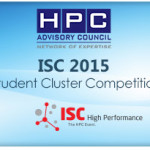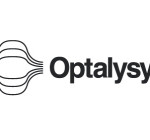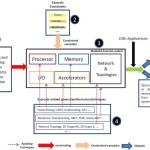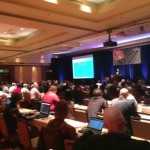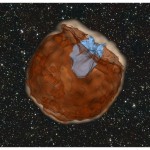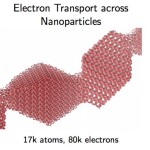A new paper from ORNL’s Sparsh Mittal and Jeffrey Vetter seeks to change the mindset of researchers using GPUs. Entitled, “A Survey of CPU-GPU Heterogeneous Computing Techniques,” the paper contends that merely offloading computational tasks to GPUs is not optimal, instead, using both CPU and GPU can lead to potentially higher speedup.
Archives for May 2015
Radio Free HPC Previews the ISC 2015 Student Cluster Competition
In this podcast, the Radio Free HPC team looks ahead to the ISC 2015 Student Cluster Competition. This year, 11 teams from around the globe will face off to build the fastest HPC cluster.
Seeking Volunteer Parallella Boards for Virtual Supercomputer
Over at Parallella.org, Adapteva Founder & CEO Andreas Olofsson writes that the organization is seeking help from its user community to “help build the most efficient virtual supercomputer in the world this week.”
Video: Introduction to Docker
In this video, Docker Founder and CTO Soloman Hykes explains what Docker is and why developers like it. “Docker is an open-source engine that automates the deployment of any application as a lightweight, portable, self-sufficient container that will run virtually anywhere.”
Poznan in Poland Goes Green with CoolIT Systems
Today CoolIT Systems announced that the Poznan Supercomputing and Networking Center has successfully deployed Rack DCLC liquid cooling. Through a collaboration with Huawei and Itprojektof, the company described the new installation as the most energy efficient HPC cluster in Poland.
Photonics Moves Forward for Future Computing Technology
The development of photonic technologies to speed up computing has taken two steps forward, following recent announcements demonstrating the use of photonics in both processing and data transfer.
PNNL Looks at Undervolting to Meet Exascale Goals
PNNL researchers are using supercomputers to take on two of the main challenges of exascale: energy efficiency and resiliency. Their simulations show that dynamic voltage scaling, also known as undervolting, can reduce power consumption and leverage existing mainstream resilience techniques at scale for improving system failure rates.
Lustre & Kerberos: In Theory and In Practice
“Kerberos is the most famous way to allow safe communications over a non-secure network, by providing authentication and encryption. This presentation will show how far Lustre can go in Kerberos security, and what kind of authentication and encryption we can get to work. We will also take an interest in the impact of various Kerberos flavors over performance.”
Hunting Supernovas with Supercomputers
Caltech researchers are using NERSC supercomputers to search for newly born supernovas. The details of their findings appear May 20 in an advance online issue of Nature.
Video: Accelerated Quantum Chemistry with CP2K
“Learn how we achieve great GPU performance with an auto-tuned sparse matrix multiplication library, enabling quantum simulation of millions of electrons.”


